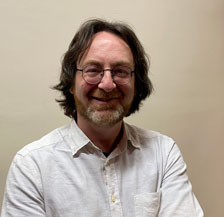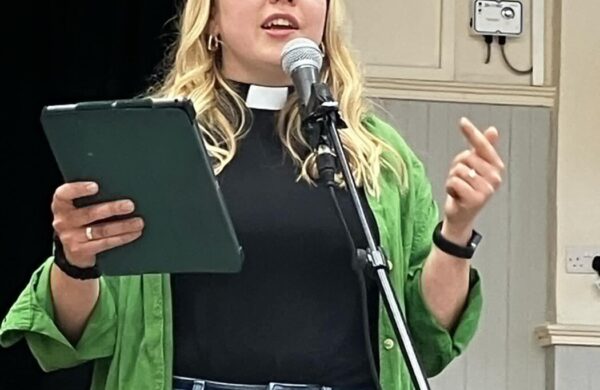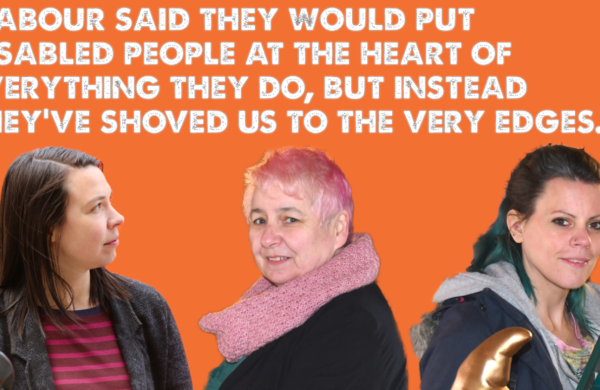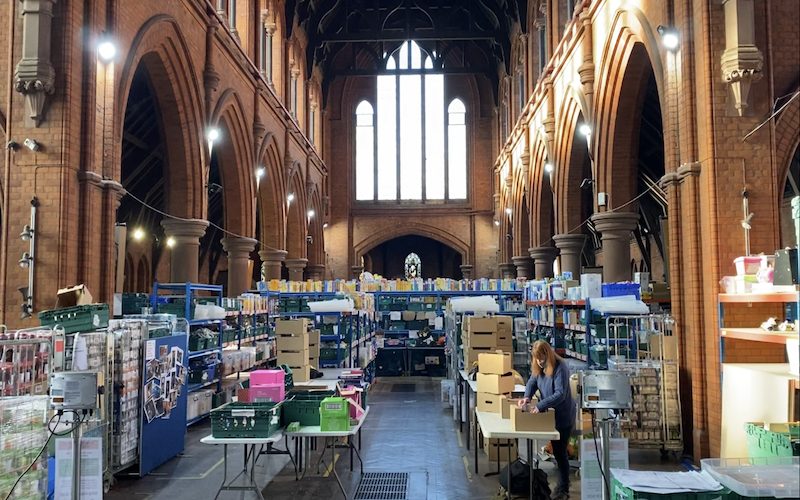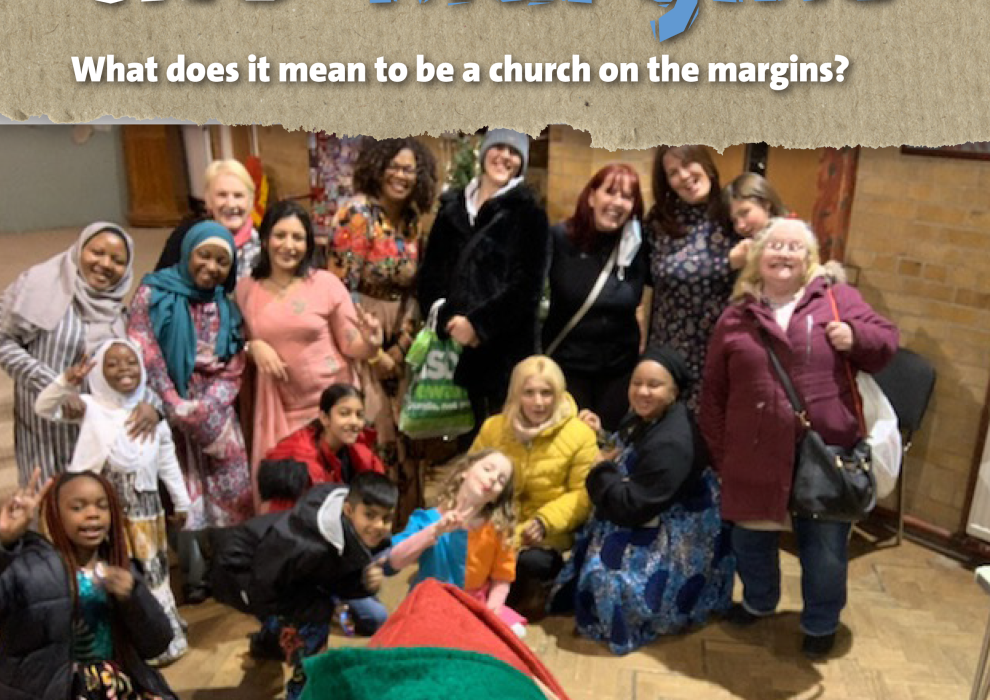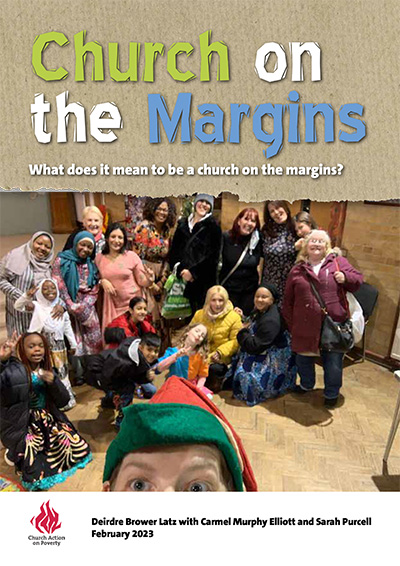A chance conversation at just the right time set Gemma Athanasius-Coleman on the road to social justice activism.
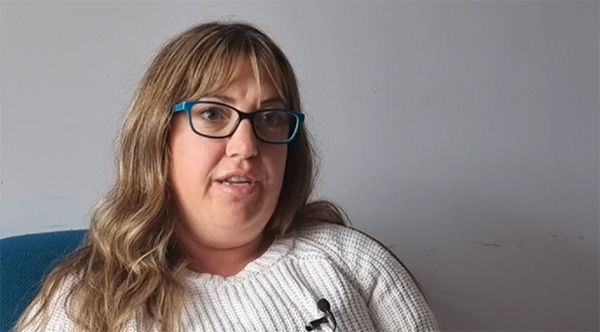
She was volunteering at Newquay Orchard, when one of the team mentioned a new project looking at food experiences during the pandemic.
Gemma joined, gained a broader and deeper understanding of the systemic causes of poverty, and is now vocal and active in campaigning for a better, more just society.
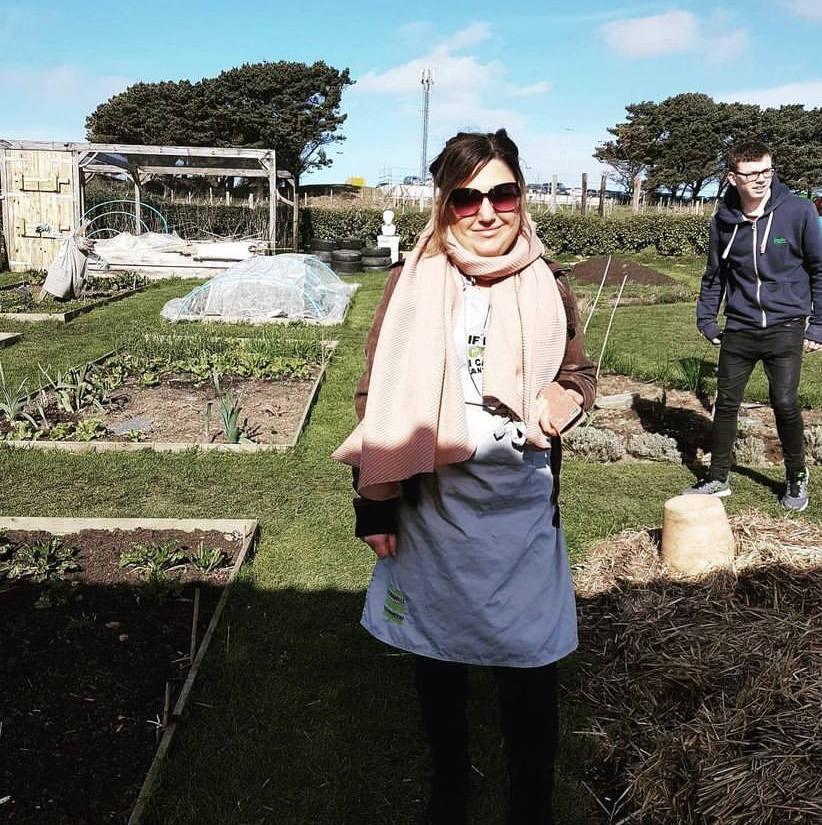
Gemma: Every kind of poverty is linked
“I lived near Newquay Orchard and was volunteering there at the time,” says Gemma. “I had come out of full-time work to care for my daughter, and was telling Andrew at the Orchard about having become a single parent and struggling financially. So sent me an email about the Food Experiences project and it sounded right up my street.
“I had been a little involved before in some environmental stuff, and had been toying with studying around the environment.
“The Orchard got me into sustainability and social justice, and then the Food Experiences project really opened my eyes to how a lot of issues are interlinked.
“Every kind of poverty is linked and every kind of injustice is linked. That work got me interested in all those links, and what can be done to change things.
“Learning is a form of activism for me. It’s not the type that involves marching to Parliament with a placard. For me, studying and learning and trying to apply that knowledge is my activism.”
Gemma: A nationwide view of poverty
Gemma grew up in Bradford, and went to university in Leeds, then moved to Cornwall in 2010 – so she has direct insight into the varying challenges facing communities in the north and south of England, and in urban and rural areas.
She also recently completed a Masters in Sustainable Development, gaining a profound understanding of the way social injustices past and present connect.
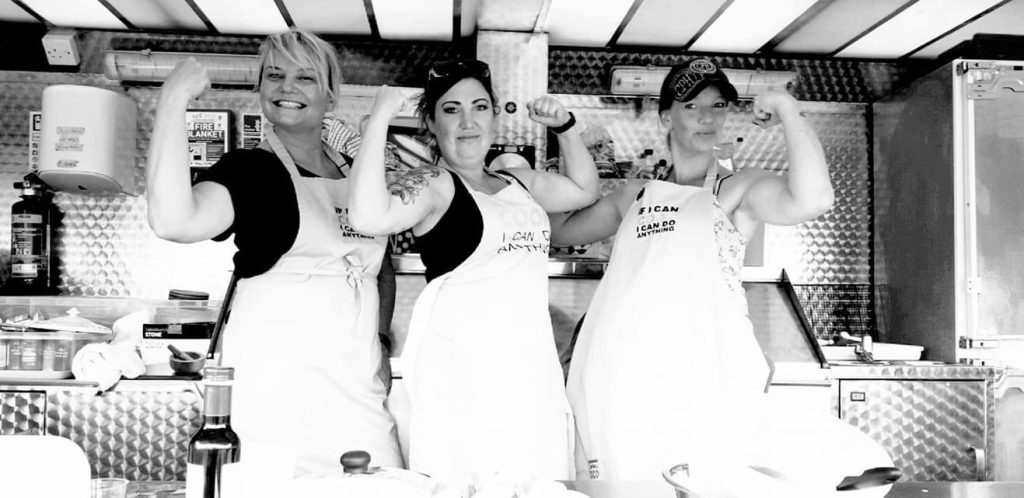
“Everything is so different here. Up north, rent was a lot cheaper, and food availability is a lot easier in cities than it is here. I didn’t have a car, so experiencing rural isolation was a shock to the system at first.
“Before, I had a 24-hour Asda five minutes from where I lived, but here everything is further away and shuts earlier. A lot of areas here are very rural, and that has its own costs and challenges (although online shopping has made that easier).
“Bus and train journeys are expensive and slow. My nearest city is Truro, which would be a 40 minutes away by car, but which takes 90 minutes by bus.
“There is a lot of tourism here, and a lot of talk about second home owners taking properties and pushing the market up. Rents are very high. I’m in social housing, but private rents are very high and housing insecurity is a big issue.
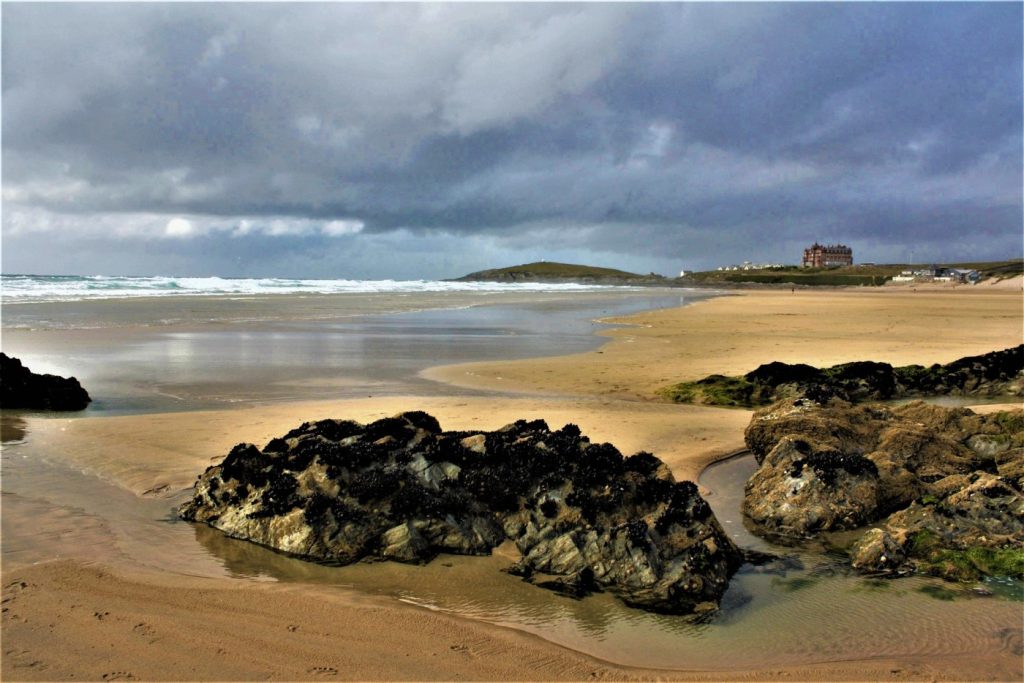
Gemma: I don't think everybody speaks up enough
“To an outsider, Newquay just looks amazing. You come on holiday and it is just stunning. It is like the California of England. A lot of people move here because it is like this is the dream.
“The reality when you get here is there is a lot of deprivation. There is not enough work, it is mostly seasonal, and minimum wage, and the cost of living is really high.
“Here has more community than where I grew up, because it is a smaller population. You can feel very isolated, but the community pulls together and it really did pull together in lockdown.
“I campaign because I think I quite enjoy being a voice for people, if that makes sense. I don’t think everybody speaks up enough about what goes on. I just feel like if I can highlight that and something can change, then that would be my ultimate goal, really. Just make a difference in my local area.
“I would say I am like 80% activist and campaigner. I find it hard, knowing there are injustices and doing nothing about it.
“It is all about fairness and equality. Everyone has a right to live a certain standard of living. There shouldn’t be such a gap between rich and poor.
“At the moment, I’m working alongside Cornwall Independent Poverty Forum on a project looking at food and schools, and what difference it makes to children to have breakfast every day and I’m hoping to start my own Social Enterprise tackling these systemic issues.
“I’m also part of the Speaking Truth To Power project, which should build confidence in speaking up about issues. At times I feel so nervous saying I have been in poverty, but I want to break that stigma and encourage people to tell stories because that’s how things change.
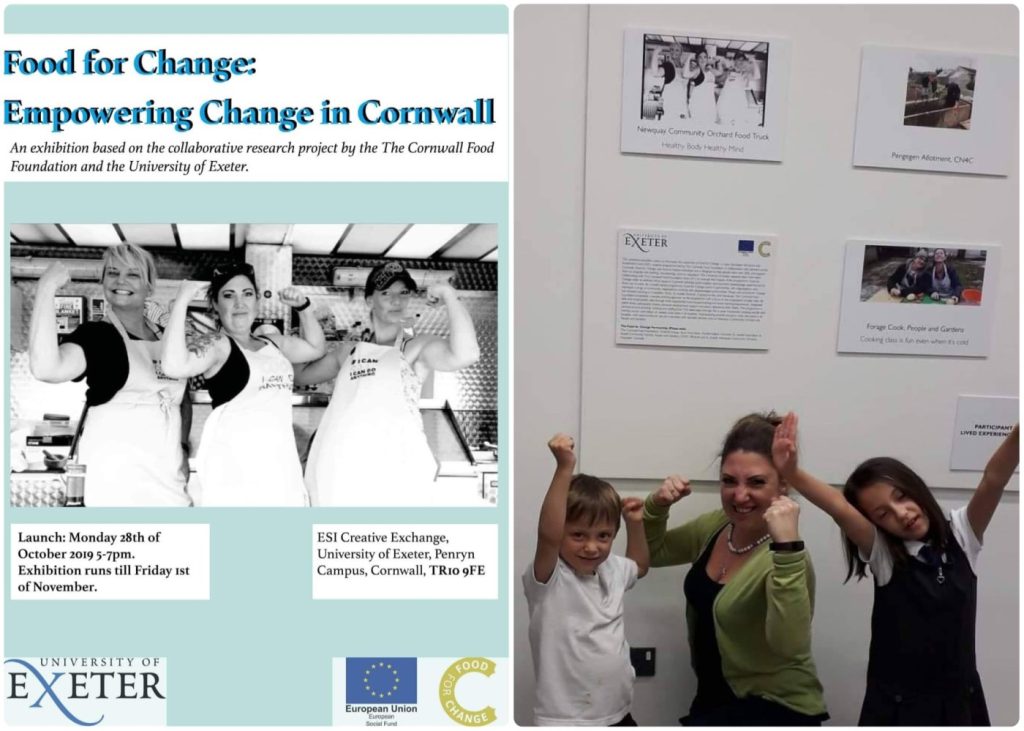
Gemma: What I want to change...
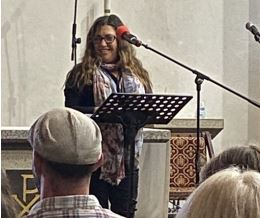
“There are a couple of issues I really want to address…
“I had a real bee in my bonnet when I did my masters and took out a loan to cover the fees. I rang the benefits people to tell them, and they stopped my income support of £45 a week. It was penalising me for doing something. The system penalises single parents for studying and I would love that to change.
“I wrote a report on it: ‘Reducing UK poverty by addressing the barriers preventing female single parent carers from entering higher education.’
“The other issue is around carers’ allowance. I can earn up to £132 a week, and receive a carers’ allowance of £70 a week. But if I go to, say, £160 a week in earnings then I lose the whole carers’ allowance.
“So if I’m earning more than £132, but less than £200, I lose out. If I was Prime Minister, the first thing I would do is knock that on the head. I am a single person who’s given the choice of staying on a low income, or being penalised when trying to get to a higher income. I do not understand how they do not encourage people to learn. It’s not good enough at all.”
Gemma: How to be a force for change
“There was a time when I felt I needed to get into politics because they seem to be the people pulling the strings.
“But in the end, I looked into studying again, and got my masters degree. That work focused on the UN Sustainable Development Goals and it was really interesting to see how all those goals are linked and to understand the history of how everything works, and of colonialism, and how it all links together – and also of ways to change it.
“It is easy to get bogged down by everything, but remember you can do your bit – you can only do what you yourself can do as an individual. You can’t fix every issue – but you can make a difference. I remember to focus and do what I can do.”


